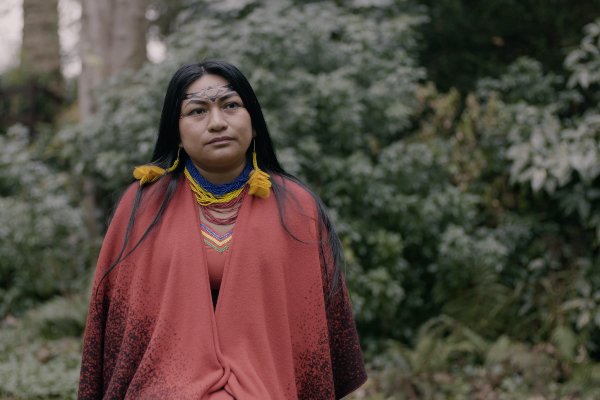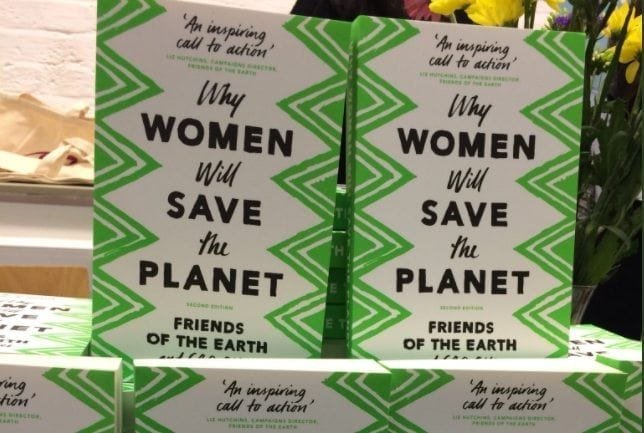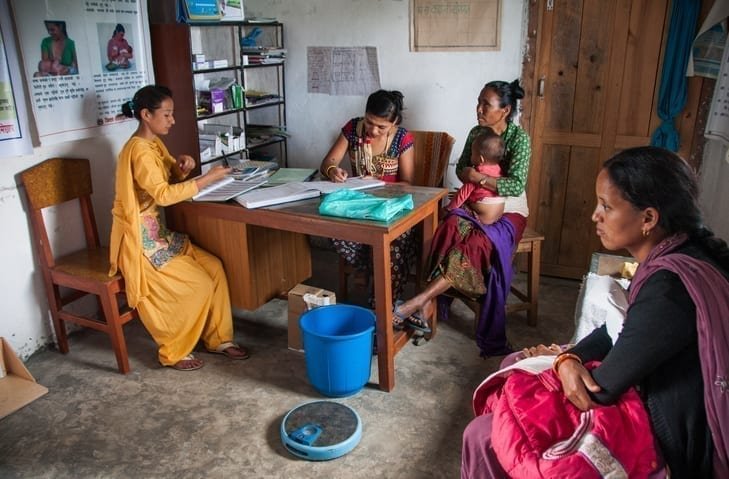Main image: Verónica Inmunda, Youth, Culture and Sports Coordinator at CONFENIAE
This article first appeared in our COP27 special issue of My Green Pod Magazine, published on 11 November 2022. Click here to subscribe to our digital edition and get each issue delivered straight to your inbox
While many of us perhaps harbour a desire to lead, the thought of it can be terrifying: 75% of people fear public speaking more than death.
It is not in our psyche to stand up, step outside our group and stand out. We fear being judged. So it came a surprise to me that I ended up co-founding SHE Changes Climate with two other women from the environmental sector.
I had previously set up Women of the Environment Group, a fairly informal network uniting women who work in the environmental sector.
There were about 90 of us globally: funders, CEOs of charities and foundations and influencers. We shared news, projects, visions, hopes and despairs; I saw myself as a connector and enabler of others, but not as the person on the front line.
Acting as an advisor to environmental charities suited me, as I was also raising a young family and running a regenerative farm.
When the news hit that the UK had only appointed men to its COP26 team, an outcry went through the group. How, in this day and age, could women be forgotten when it came to the people who would define the agenda, framing and narrative of the Conference of the Parties, the international climate negotiations that were set out under the guidance of the UNFCCC?
The UK was a signatory to the Gender Action Plan, which stipulates that women must be equally represented all the way to the top of these conferences.
Surely this was an oversight that could be fixed with a few quiet conversations.
We set up SHE Changes Climate to demand 50:50 Vision at the top of COP. Suddenly I was in charge of building and running a campaign, leading action for gender equality and taking direct climate action.
Climate & social justice
We spoke to COP26 president Alok Sharma and Peter Hill, COP26 CEO, as well as their chief of staff, and submitted a list of female climate experts from the UK and Commonwealth. To our surprise, no further women were appointed.
By the time COP26 came round, only two out of 12 directors were women. Due to the lack of representation of women at the top of COP, their perspectives and views would not be heard.
Instead, men would be making these decisions for all of humanity, ignoring the glaring fact that experiences of climate change are not gender neutral.
 Play Video about This Rock Might Just Save The World
Play Video about This Rock Might Just Save The World Play Video about Play 2 hours of rock
Play Video about Play 2 hours of rock Play Video about Play 2 hours of brook
Play Video about Play 2 hours of brook Play Video about Play 2 hours of sheep
Play Video about Play 2 hours of sheep















































